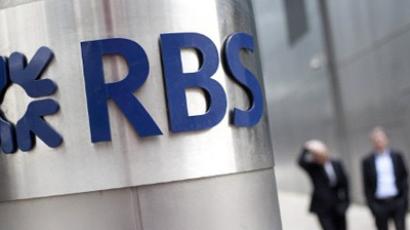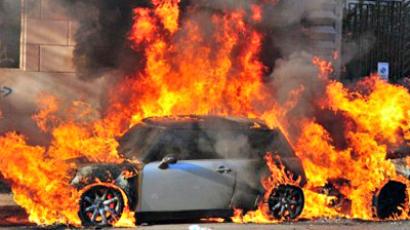EU summit eyes Lisbon Treaty change
While the meeting of the European leaders in Brussels has postponed the final decision on the struggling Greek economy until Wednesday, their plan to establish a joint economic government might lead to an architectural update of the European Union.
The much-heralded summit in Brussels has failed to come up with a solution to the EU's spiraling debt crisis. Another assembly of the European Council has been scheduled for Wednesday to precede the eurozone leaders meeting. The day will be mostly dedicated to “the agreements on Greece, on banks, on leveraging the EFSF (European Financial Stability facility) and governance," the European Commission president, Jose Manuel Barroso, told the press conference after the Sunday summit. Still, some agreement seems to have been worked out during the Sunday meeting. Athens is pushing to receive more funding, while private holders of Greek debt are to see mandatory “haircuts”, or losses. The discussions now put the haircut between 30 per cent and 50 per cent.As the EU leaders seek “economic convergence”, they have agreed to establish a joint economic government to be headed by Herman van Rompuy, the current president of the European Council. The idea of joint economic government was first proposed by France’s President Nicolas Sarkozy some three years ago. Creating a new EU structure will require “limited treaty changes,” said Van Rompuy. “'Limited' means that there will not be a general overhaul of the institutional architecture we find in the Lisbon Treaty.” The EU leaders are also considering increasing the firepower of the ESFS from US$611 billion to approximately $2.5 trillion. The ESFS might also turn into an insurance company rather than a bank.With no decision on Greece, the summit focused on enhancing growth within the EU. Exploiting the single market, reducing administrative burden and reducing the overall regulatory burden in short- to mid-term were among the discussed measures.
Berlusconi defends poor finances with ‘bad media coverage’
A stern message was sent to the Italian Prime Minister Silvio Berlusconi, as the leaders fear Italy could be the next country to fall into the black hole of the eurozone debt crisis, if it does not move quickly to balance its budget. "Reforms on the labor market, public enterprise, privatization, the judicial system, combating fiscal fraud and we wanted to make sure that everything will be implemented in time," said Herman van Rompuy commenting on the measures the leaders deem suitable for Italy.Berlusconi insisted that the Italian fundamentals were "very solid," reports the Associated Press, and blamed “bad press” for creating wrong assumptions in regard of Rome’s finances.The debt of the eurozone's third-largest economy totals over $2 trillion, accounting for almost 120 per cent of its GDP. The government, planning to balance the country’s budget by 2013, passed an almost $75-billion package of spending cuts and tax increases in August to secure its bonds.
Sarkozy ‘tired’ of UK’s interference
Reports also suggested that French President Nicolas Sarkozy lashed out against British Prime Minister David Cameron, which took place during the summit behind closed doors. "We are sick of you criticizing us and telling us what to do. You say you hate the euro and now you want to interfere in our meetings," The Herald Sun newspaper quotes Sarkozy as saying. Sarkozy reportedly wanted to restrict the new summit on Wednesday to the members of the eurozone only, but in the end the European Council meeting will be open to all of the 27 EU members.Sarkozy’s unexpected sting can be regarded as the political desperateness of the French president, believes Johan Van Overtveldt, the editor-in-chief of Trends and Knack business magazines. The Save the eurozone campaign largely depends on the countries rated AAA by the credit rating agencies, with Germany and France being the most important. Meanwhile, France itself is on the verge of losing its favorable AAA investment rating.“If this happens it means automatically that Mr. Sarkozy can forget about being re-elected as French president,” Van Overtveldt told RT. “On the other hand, if he does what it is necessary to keep the AAA rating it will just as well jeopardize his chances, because then he will have to cut expenses in order to get the budgetary situation in France back under the control.” On Sunday, the European Union held two summits. The first was among the 27 European leaders, who discussed economic policy and preparations for the upcoming G20 Summit. The second involved the 17 eurozone leaders, who talked about the financial situation of the single currency area. The key issues, according to Reuters, were bringing Greece's debt burden under control and scaling up the EFSF.













